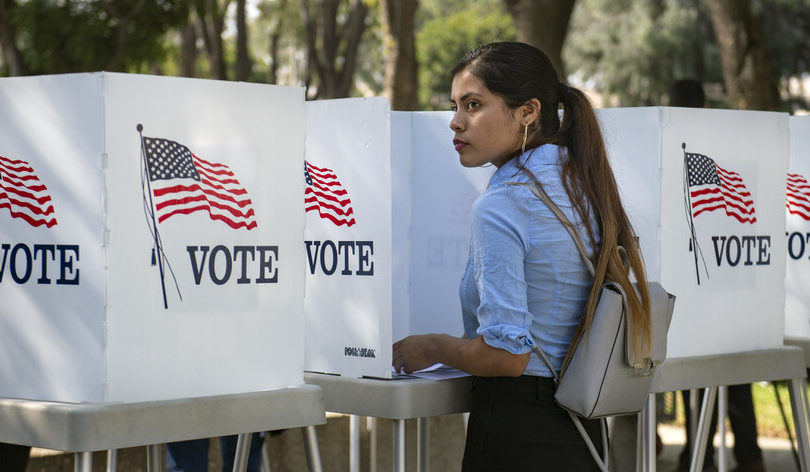The upcoming presidential election has been on everyone’s minds this year. Politics run rampant in the media, bringing both community among the like-minded and divide between those who disagree. While the battle between Donald Trump and Joe Biden will go down in history, some of the smaller propositions this election year could also leave a lasting impact on the future. One in particular being California’s Proposition 18.
The California Constitution currently allows individuals who are at least 18 years old on the date of an election to vote in that election. Proposition 18, if passed, will permit 17-year-olds who will be 18 by the next general election to vote in primary elections and special elections when they are still 17. 18 states, including Washington D.C., already allow 17-year-olds to vote in these cases.
The proposition was put on the ballot by the California Legislature, with a bill introduced by San Mateo Democrat Assemblymember Kevin Mullin. Democratic legislators have tried to do this six times before, but this is the first to make the ballot.
Those in support of Proposition 18 argue that young people whose birthdays lie between the primaries and the general election are currently at a disadvantage, since they lack full exposure to the election process. Since they have no say in the primary elections, they are unable to submit their most educated vote in the general election. Supporters also argue that allowing teens who would be first time voters in an election cycle to participate from the beginning could increase interest and voter participation among the youth, raising the voices of younger generations.
“The young people envisioned in the proposition would have a crack at both votes, choosing the first cut of contenders and then taking part in the final runoff. It allows for a full cycle in the political game,” says the San Francisco Chronicle Editorial Board.
Many high school students, including 17-year-old Uma Labouisse, would love to see the proposition passed. “I think that 17-year-olds are definitely capable of doing enough research and making smart and informed decisions for voting and I personally do wish that I could vote right now. A lot of teenagers today are involved and engaged in politics and I think that those 17-year-olds should be able to vote in primaries,” says Uma.
Those opposed to Proposition 18 bring up that 17-year-olds are legal minors, and often still living at home with strong parental influence. Voting requires a significant amount of research and thought, and opposers don’t necessarily trust 17-year-olds to independently educate themselves without following the decisions of their parents, teachers, and fellow students.
Others don’t trust the youth’s sources of information. “The reason me and others are working against this is because people that young get most of their information from Twitter, from comedians on TV like John Oliver, or by similar means. They’re inside an information bubble,” said Ted Powers, a retired electrician countering Prop 18 in Riverside County, in a California Globe interview.
San Mateo High School teacher Ms. Kalinski is in favor of the proposition, and trusts her students to vote thoughtfully. “I think that any 17 year old who makes an effort to vote in the primary is likely to be pretty politically active and therefore has probably done their homework on the election. Traditionally, voter turnout in the primaries is lower than in the general, so voters who come out to the primary, of any age, are likely to be more informed,” says Kalinski.
The proposition will lead to more county costs to send and process voting materials to eligible registered 17-year-olds, but will also expand the voting pool. California voters will ultimately need to decide whether or not they trust the young generation to have good judgement- whether they want to keep things the same, or allow those 17-year-olds to have a greater voice in politics.

